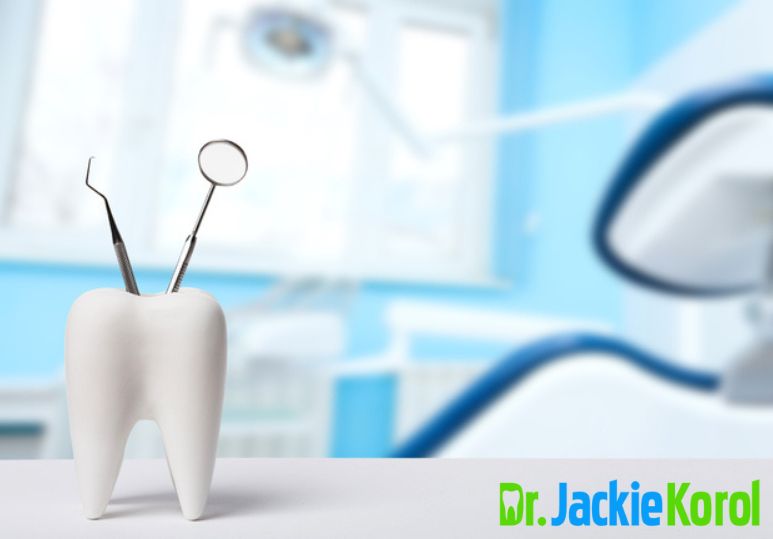Dental Exams Can Detect Disease In The Body

Dental exams are an important part of overall wellness, and not only for the reasons you may expect. Of course, twice-yearly dental exams and cleanings are vital to keeping your teeth and gums healthy and strong, but dental exams are also an opportunity for your dentist to detect the earliest signs of disease elsewhere in your body. For many conditions, the first visible and outward signs of illness will present in the mouth and your dentist can be key in facilitating diagnosis. Oral health and overall health are elaborately interconnected, so ensure you see your dentist and hygienist regularly, not only to protect your smile, but your comprehensive well-being.
What Diseases Could My Dentist Detect During A Dental Exam?
There are several diseases that can present oral symptoms and alert your dentist to the potential development of disease somewhere else in the body. Here are just a few:
Inflammatory Bowel Disease (Crohn’s Disease and Ulcerative Colitis)
Just like the bowels and intestines, the mouth is part of the digestive tract. It makes sense that sickness in one part could present in another part. Small white tags called mucosal tags, recurring oral ulcers, and swelling and lacerations of the skin on the lips or in the corners of the mouth can indicate IBD.
Diabetes
Chronic bad breath, dry mouth, thrush, a burning sensation in the mouth or on the tongue, and rapidly progressive gum disease can indicate uncontrolled type 2 diabetes. Most often, when a person gains control of their diabetes, the oral symptoms will resolve.
Heart Disease
Not only can the presence of periodontal disease indicate compromised heart health, but gum disease and inflammation are associated with a higher risk for heart attack and stroke. The correlation between gum disease and heart health is not yet completely understood, but regular dental exams with your dentist and an exploration of the cause of inflammation or infection could save your life.
Osteoporosis
Osteoporosis is a loss of bone density most common in women over the age of 50. Sometimes patients are not diagnosed with osteoporosis until they experience a bone fracture. Through a dental x-ray and a physical dental exam, your dentists may notice jawbone loss, a decline in tooth density or tooth loss, dentures that have become loose, and even gum disease.
Stress
Although it is considered a mental or an emotional condition, we are learning more and more about the negative effects of stress on our physical well-being. Although stress doesn’t often occur without us noticing it, during your dental exam your dentist may detect worn down, chipped, or cracked teeth, bone loss, and jaw injury caused by subconscious clenching or grinding due to stress. Your dentist may not be telling you something you do not know if they mention you seem stressed, but the physical implications of stress on your body may serve as a wake-up call to reduce stress for your overall well-being.
Protect Your Overall Health With Regular Dental Exams
The connection between your overall health and your physical health goes both ways. Disease can cause the development of oral symptoms and poor oral health and inflammation can lead to disease elsewhere in your body. Foster comprehensive health and make twice-yearly dental exams an essential part of your strategy for well-being.
Regular dental cleanings are also a critical part of overall health.
Learn more by reading The Risks Of Skipping Regular Dental Cleanings.
Dr. Korol and her skilled and compassionate team are committed to providing the highest quality and safest, most holistic approach to dental care, oral health, and overall well-being. We offer the newest and most effective treatments and technologies to support a lifetime of good health. Our practice is committed to a biocompatible approach to family dentistry. Book your appointment by calling (403) 245-9099 or filling out our online form.
FAQ
Digital x-rays statistically use 80-90% less radiation than traditional film x-rays and produce high-quality images in less than 5 seconds. They also eliminate the need for harsh developing chemicals that pollute the environment.
During your dental exam your dentist will:
Examine your jaw, neck and/or head: The dentist may do this to detect any signs of oral cancer or temporomandibular joint disorder (TMJ).
- Visually examine each of your teeth: To check for plaque or tartar buildup, decay, fracture, or any other damage.
- Examine your gums: Your gums can be a big indicator of your overall health and gum disease.
- Examine your bite: The dentist will evaluate how your top and bottom teeth align to check for an improper bite.
- Check for changes: The dentist will compare your current dental information with the results of previous dental exams to check for any changes.
- Digital X-rays: The dentist will use our accurate digital x-ray system to take accurate x-rays of your teeth while exposing you to minimal radiation.
Biocompatible dentistry is an approach that considers a patient's total wellness compared to treating a patient just for their teeth and dental needs. Various diseases can result in oral health issues. Biocompatible dentistry takes this into consideration when treating oral health issues to ensure the total well-being of the patient.
CONTACT US
Questions? Comments? Call us today at 1-403-245-9099 or fill out the form below:


